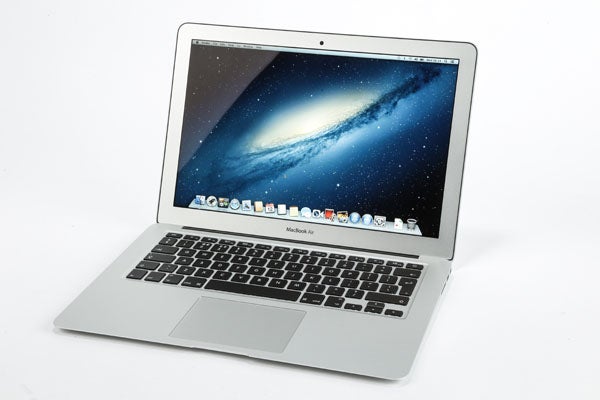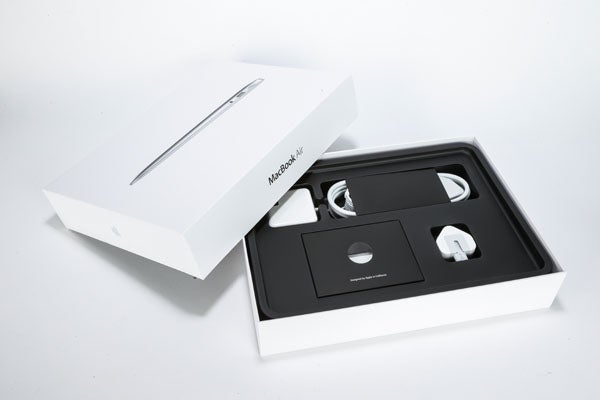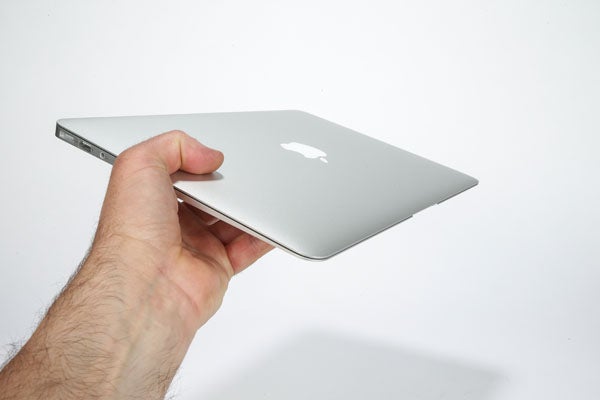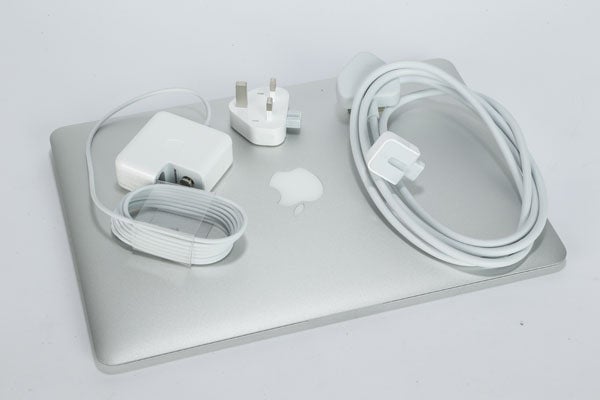Apple MacBook Air 13-inch 2013 Review - Performance, Gaming and Battery Life Review
Performance, Gaming and Battery Life
Apple sets the standard once again

Sections
- Page 1 Apple MacBook Air 13-inch 2013 Review
- Page 2 Performance, Gaming and Battery Life Review
- Page 3 Keyboard, Touchpad, Heat & Noise and Verdict Review
Apple MacBook Air 13-inch 2013 – Performance
There’s a lot more to talk about here than first meets the eye. The Apple MacBook Air 13-inch 2012 saw a straightforward speed bump. That was it. But this latest refresh to Intel’s Haswell processors has more subtlety.
Intel has focused on two things this time around: efficiency and graphics. Haswell processors are only 10 per cent faster than their direct predecessors, give or take a percentage or two. But they’re more power efficient, while Apple puts the graphics improvement at 40 per cent
You can read a lot more about these details in our guide: What is Intel Haswell? 5 reasons why you should care.

To complicate matters further, Apple has tinkered with the innards. It’s opted for a notional downgrade on the processor, choosing a dual-core 1.3GHz Intel Core i5 instead of the 1.7GHz clock speed on last year’s model – a 23.5 per cent (400MHz) decrease in clock speed alone. It’s notional because Apple has effectively traded the performance bump of Haswell for a lower clock speed, all in the name of reducing the price and improving battery life.
It’s hard to know what difference this makes without testing the two processors in isolation. But we can’t test in isolation because of another Apple change: it’s switched the built-in 128GB SSD from a SATA3 6Gbps bus to PCIe.
It doesn’t really matter whether you understand what all this means. All you need to know is that, as SSDs have become faster, the traditional SATA3 6Gbps connection has become a bottleneck. Moving to PCIe unlocks the true potential of the SSD in the Apple MacBook Air 13-inch 2013. That means faster read and write speeds, even faster boot speeds (now around 10 seconds from cold) and instant waking from sleep. SSDs have a hugely beneficial impact on system responsiveness, so it’s a significant change.
The result, however, is that in raw benchmarks the Apple MacBook Air 13-inch 2013 is actually marginally slower than its 2012. We do mean marginally, it’s only 1.5 per cent slower in the Geekbench 2 benchmark – not enough to make a noticeable difference – but it is slower.
Does this matter? Not hugely. Actual responsiveness is just as good, if not better, and it is in effect exactly as fast as last year’s model, which is quite fast enough for this type of laptop, especially considering the battery life gains. It sails through most computing tasks with ease, including light image work. Only video editing and heavy-duty photo editing tax it.

Apple MacBook Air 13-inch 2013 – Gaming Performance
It’s quite a different situation in games, where Intel’s HD 5000 integrated graphics is a significant step up from the previous generation. We managed to run Half-Life 2: Episode 2 at 1,440 x 900 with all detail levels set to their maximum, and with 2x MSAA, and enjoy a smooth game with only very occasional dips into the low 20 frames per second. Removing anti-aliasing, meanwhile, resulted in a silky smooth 60fps or more most of the time.
The previous generation Intel HD 4000 chipset can’t touch this performance, even in this relatively old game. It means more recent titles are within reach and at reasonable settings, too, though probably without really taxing features like anti-aliasing.

Apple MacBook Air 13-inch 2013 – Battery Life
But battery life is the 2013 Apple MacBook Air’s true coup de grace, and the reward for the performance trade-off. Apple’s claimed 12 hours of online productivity is nothing short of astounding. But what about the reality?
We kicked off our testing running an HD video playback test run at 50% brightness with Wi-Fi kept on. Even in this challenging scenario it lasted six hours and 56 minutes, near enough seven hours. Had we switched off Wi-Fi we wager it would have passed this mark comfortably.
That’s impressive enough, but our web-browsing test proved even more spectacular. Left refreshing a web page every two minutes at 50 per cent brightness, the 2013 Apple MacBook Air 13-inch lasted 10 hours and 15 minutes.
A little short of Apple’s 12-hour claims, then, but our test is on the tough side and doesn’t include any downtime whatsoever. We have no doubt this really is a laptop you could use ‘all day’ and not worry about charging.
The Apple MacBook Air 13-inch 2013 charges impressively fast, too. A 30-minute charge from near flat took the battery from 4% to 41%. Enough for a projected three hours and 47 minutes in our web browsing test, and more than likely enough for four hours of light use. Impressive
How we test laptops
Unlike other sites, we test every laptop we review thoroughly over an extended period of time. We use industry standard tests to compare features properly. We’ll always tell you what we find. We never, ever, accept money to review a product.

